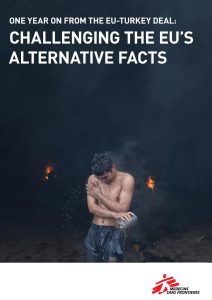Via The Conversation – Liza Schuster critically writes about her experiences during a flight from Istanbul to Kabul where she spoke to some of the thirty men being deported or “voluntarily returned” to Afghanistan. It was their second deportation after having been sent back to Turkey from the EU as part of the EU-Turkey deal. The article addresses not only the particular cruelty of deporting people to a war-torn country – it also shows the absence of the IOM that was supposed to support the arriving refugees:
Continue reading As violence sweeps Kabul, the rapid pace of deportations from Europe continues

